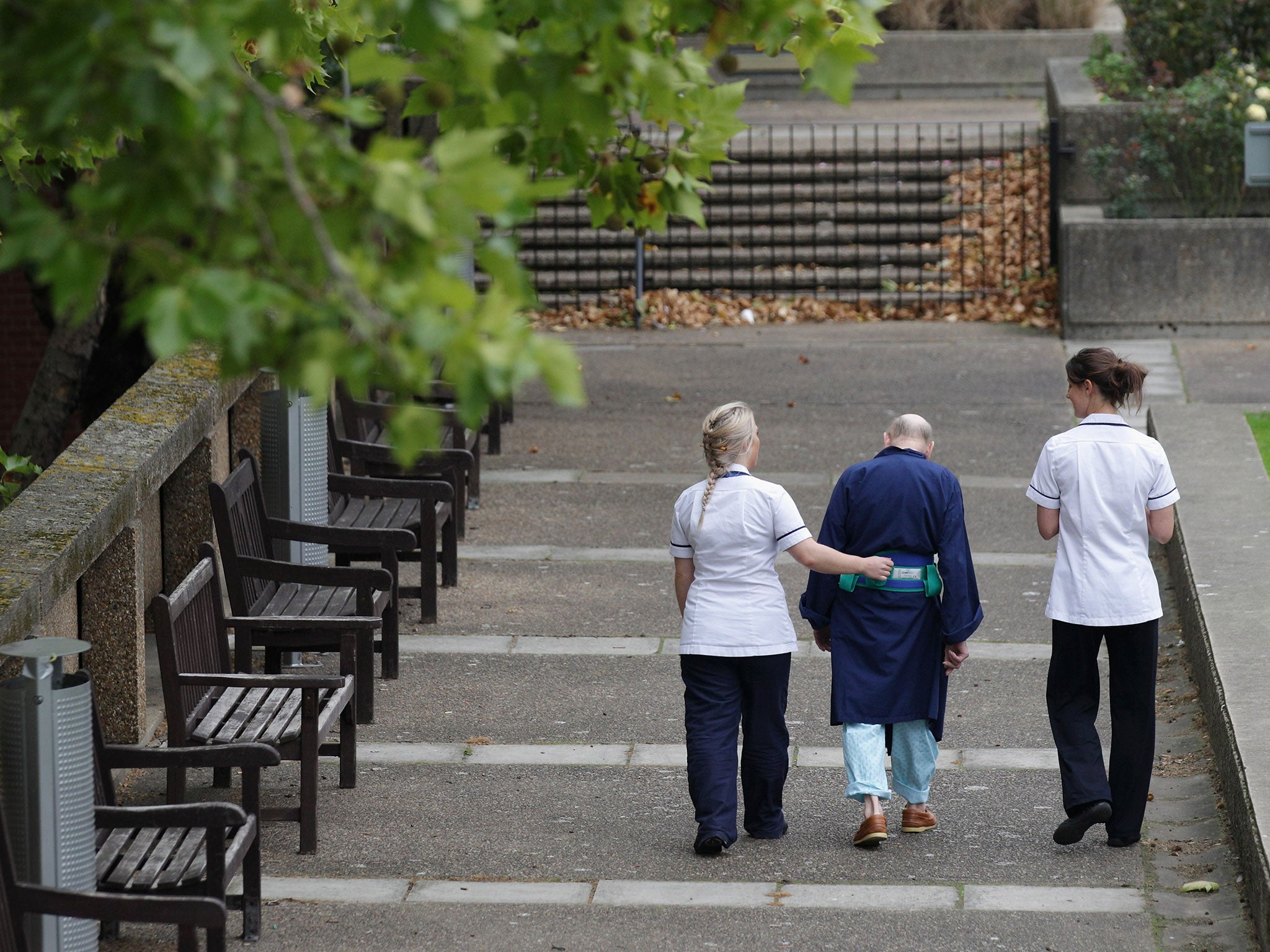NHS staff could be trained up to fill in for junior doctors, bosses suggest
A Nuffield Trust review found some areas in England are already using other staff to fill in for hospital doctors

Nurses, paramedics and pharmacists should be trained up to fill gaps in junior doctor rotas, NHS bosses have said.
Amid the ongoing row over junior doctors' weekend working conditions, a Nuffield Trust review found examples of nurses filling in for hospital doctors and pharmacists for GPs.
But union bosses told The Independent the changes must not be made at the expense of good quality training for doctors themselves.
Hospitals have struggled to cope with gaps in junior doctor rotas and the increasing numbers of patients requiring treatment in recent years.
The Nuffield Trust was asked by NHS Employers to look at how the 1.3 million-strong workforce could be reshaped to address the problem.

The think tank found some areas were already using other NHS staff to fill in for doctors.
Sheffield Teaching Hospital Trust uses nurses to fill in for junior doctors in accident and emergency units, surgery and paediatrics, while 10 GP practices in York and Hull have employed three pharmacists to see patients who need their medicine reviewed, according to the report.
The report said as doctors only made up one in 10 of the workforce much more was needed from other health staff.
It found that extending the skills of registered healthcare professionals provides opportunities to manage the growing burden of chronic disease more effectively, and could potentially release some savings.
However, the report also warned that reshaping the NHS workforce, if not carefully implemented could increase patient demand, and cost money rather than save money.
Candace Imison, report author and Nuffield Trust Director of Policy, said in a statement: “Our research shows that reshaping the NHS workforce can offer huge opportunities – for patients, through improved health outcomes, and for staff, through more rewarding roles and better career pathways.
“But we stress in our report that this is not simply a ‘nice to do’ – it is urgent, and essential if the Health Service is to find a sustainable balance between available funding, patient needs and staff needs, and deliver services fit for the 21st century”.
Dr Mark Porter, BMA chair of council, said: “While we support the upskilling of the existing workforce and the introduction of new roles to assist with patient need, this should not be done at the expense of good quality training for doctors or, indeed, doctors themselves.”
He added: “ It takes doctors many years to learn how to provide the best care for their patients, and there is no substitute for this kind of expertise and experience. There should be more staff support for doctors to help them coordinate the best possible care for their patients.”
And UNISON head of health Christina McAnea said in a statement: "The impact of the cuts to the NHS bursary will make it harder to recruit more people into nursing, and it will discourage them from doing the additional training necessary to take on a wider range of tasks."
"Too many NHS support workers can't achieve their full potential because, with the financial squeeze on the NHS, there's no funding for training courses."
"Developing the NHS support workforce must not be seen as a quick and cheap fix for the chronic shortages of nurses and other health workers across the country."
Join our commenting forum
Join thought-provoking conversations, follow other Independent readers and see their replies
Comments
Bookmark popover
Removed from bookmarks